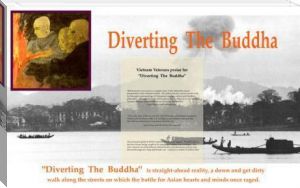Oroonoko, Aphra Behn [novels to improve english .TXT] 📗

- Author: Aphra Behn
- Performer: -
Book online «Oroonoko, Aphra Behn [novels to improve english .TXT] 📗». Author Aphra Behn
When he was well enough to speak, we talked to him, and asked him some questions about his wife, and the reasons why he killed her; and he then told us what I have related of that resolution, and of his parting, and he besought us we would let him die, and was extremely afflicted to think it was possible he might live: he assured us, if we did not dispatch him, he would prove very fatal to a great many. We said all we could to make him live, and gave him new assurances; but he begged we would not think so poorly of him, or of his love to Imoinda, to imagine we could flatter him to life again: but the chirurgeon assured him he could not live, and therefore he need not fear. We were all (but Caesar) afflicted at this news, and the sight was ghastly: his discourse was sad; and the earthy smell about him was so strong that I was persuaded to leave the place for some time (being myself very sickly, and very apt to fall into fits of dangerous illness upon any extraordinary melancholy). The servants, and Trefry, and the chirurgeons, promised all to take what possible care they could of the life of Caesar; and I, taking boat, went with other company to Colonel Martin’s, about three days’ journey down the river. But I was no sooner gone than the Governor, taking Trefry, about some pretended earnest business, a day’s journey up the river, having communicated his design to one Banister, a wild Irishman, and one of the council, a fellow of absolute barbarity, and fit to execute any villainy, but rich; he came up to Parham, and forcibly took Caesar, and had him carried to the same post where he was whipped; and causing him to be tied to it, and a great fire made before him, he told him he should die like a dog, as he was. Caesar replied, this was the first piece of bravery that ever Banister did, and he never spoke sense till he pronounced that word; and, if he would keep it, he would declare, in the other world, that he was the only man, of all the whites, that ever he heard speak truth. And turning to the men that had bound him, he said, “My friends, am I to die, or to be whipped?” And they cried, “Whipped! no, you shall not escape so well.” And then he replied, smiling, “A blessing on thee”; and assured them they need not tie him, for he would stand fixed like a rock, and endure death so as should encourage them to die; “But, if you whip me,” said he, “be sure you tie me fast.”
He had learned to take tobacco; and when he was assured he should die, he desired they would give him a pipe in his mouth, ready lighted; which they did. And the executioner came, and first cut off his members, and threw them into the fire; after that, with an ill-favored knife, they cut off his ears and his nose and burned them; he still smoked on, as if nothing had touched him; then they hacked off one of his arms, and still he bore up, and held his pipe; but at the cutting off the other arm, his head sunk, and his pipe dropped, and he gave up the ghost, without a groan or a reproach. My mother and sister were by him all the while, but not suffered to save him; so rude and wild were the rabble, and so inhuman were the justices who stood by to see the execution, who after paid dearly enough for their insolence. They cut Caesar in quarters, and sent them to several of the chief plantations: one quarter was sent to Colonel Martin, who refused it, and swore he had rather see the quarters of Banister, and the Governor himself, that those of Caesar, on his plantations; and that he could govern his negroes without terrifying and grieving them with frightful spectacles of a mangled king.
Thus died this great man, worthy of a better fate, and a more sublime wit than mine to write his praise: yet, I hope, the reputation of my pen is considerable enough to make his glorious name to survive all the ages, with that of the brave, the beautiful, and the constant Imoinda.
THE END





Comments (0)